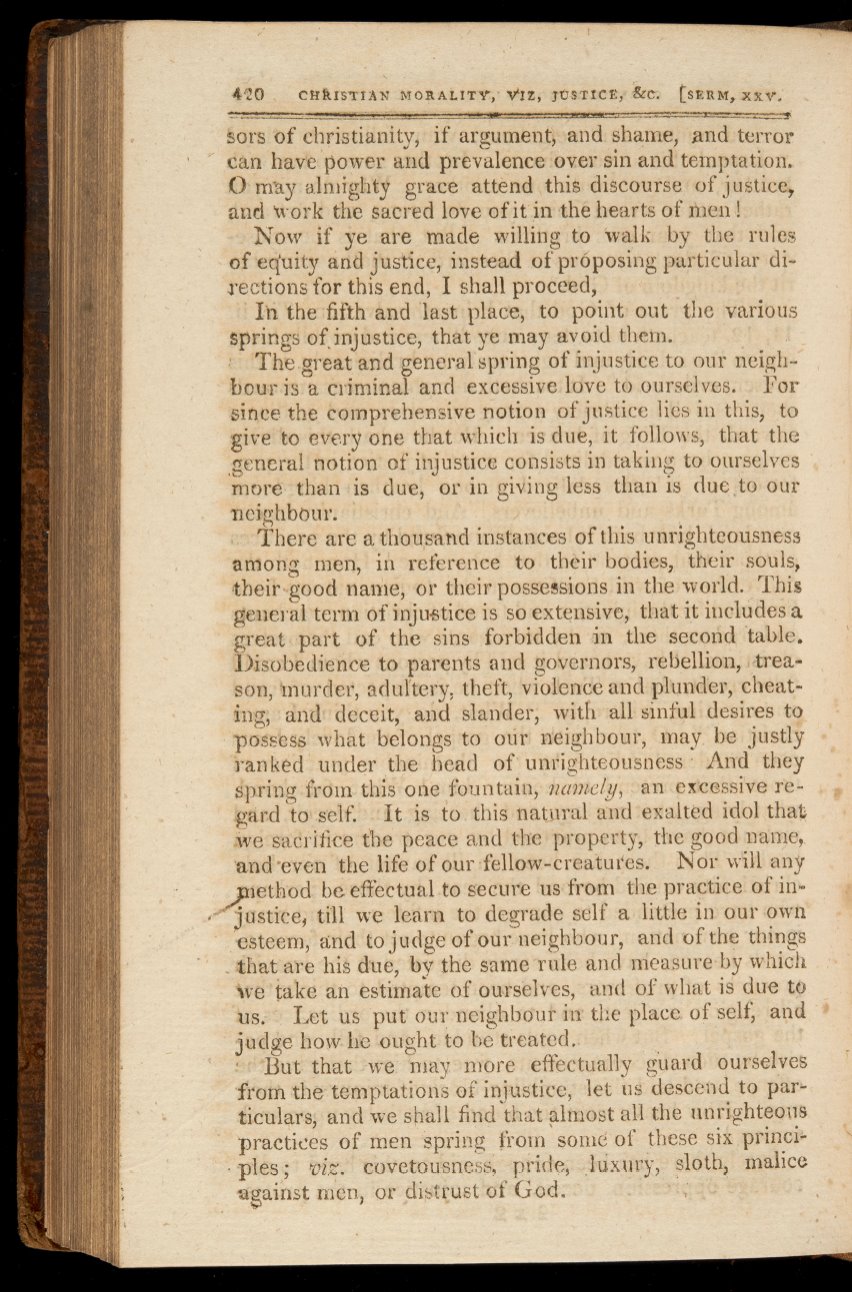

420
CHRISTIAN MORALITY, V'IZ,
JUSTICE,
&C.
[SEAM, XXV.
sors
of
christianity,
if
argument, and
shame,
and terror
can
have power
and prevalence over
sin
and temptation.
G
may
almighty grace
attend
this discourse
of justice,
and
'work
the sacred
love
of
it in the
hearts of men
!
Now
if
ye
are
made
willing to walk
by
the rules
of
equity and justice, instead
of
próposing
particular
di-
rections
for
this end,
I
shall proceed,
In
the
fifth
and
last
place,
to
point
out
the various
springs
of
injustice,
that
ye
may
avoid them.
The great
and general spring
of
injustice to our
neigh
-
bour
is
a
criminal and
excessive love
to
ourselves.
For
since the comprehensive notion
of justice
lies in this,
to
give
to
every
one
that
which
is
due,
it
follows,
that
the
.general
notion
of
injustice consists
in
taking to
ourselves
more than
is
due, or
in
giving
less
than
is
dueto
our
neighbour.
There
are a thousand instances of
this
unrighteousness
among
men,
in
reference
to
their
bodies,
their
souls,
their
-good
name,
or their
possessions in the world.
This
general term of injustice
is so
extensive,
that
it
includes
a
great
part
of the
sins
forbidden in the
second
table.
Disobedience
to
parents and
governors, rebellion,
:-trea-
son,
murder, adultery,
theft, violence
and plunder, cheat-
ing,
and deceit, and slander; with
all sinful desires
to
possess what
belongs to
our neighbour,
.may,
be
justly
ranked under
the head
of
unrighteousness And they
spring
from this one
fountain,
namely,
an excessive
re-
gard
to
self.
It
is
to this
natural
and exalted
idol
that
We
sacrifice the
peace and
the
property, the
good name,
-and
-even
the
life
of
our
fellow
-
creatures.
Nor
will
any
ethod be effectual
to
secure
us
from the
practice of
in-
justice, till
we
learn
to
degrade self a little
in
our
own
esteem,
and
to
judge of our
neighbour, and
of
the things
that
are
his
due,
by
the
same
rule
and Measure
by
which
we
take an estimate of
ourselves,
and
of
what
is
due
tv
us.
Let
us
put
our neighbour
in
the
place of
self,
and
judge
how he
ought
to
be
treated..
But
that
we
may
more
effectually
guard ourselves
from
the
temptations of
injustice,
let
us
descend to Par-
ticulars,
and
we
shall
find
that
almost
all
the unrighteous
practices
of
men
spring
from some
of
these
six
princi,
pies;
viz.
covetousness, pride, ,luxury, sloth, malice
tigainst
men,
or
distrust
of
God.

















